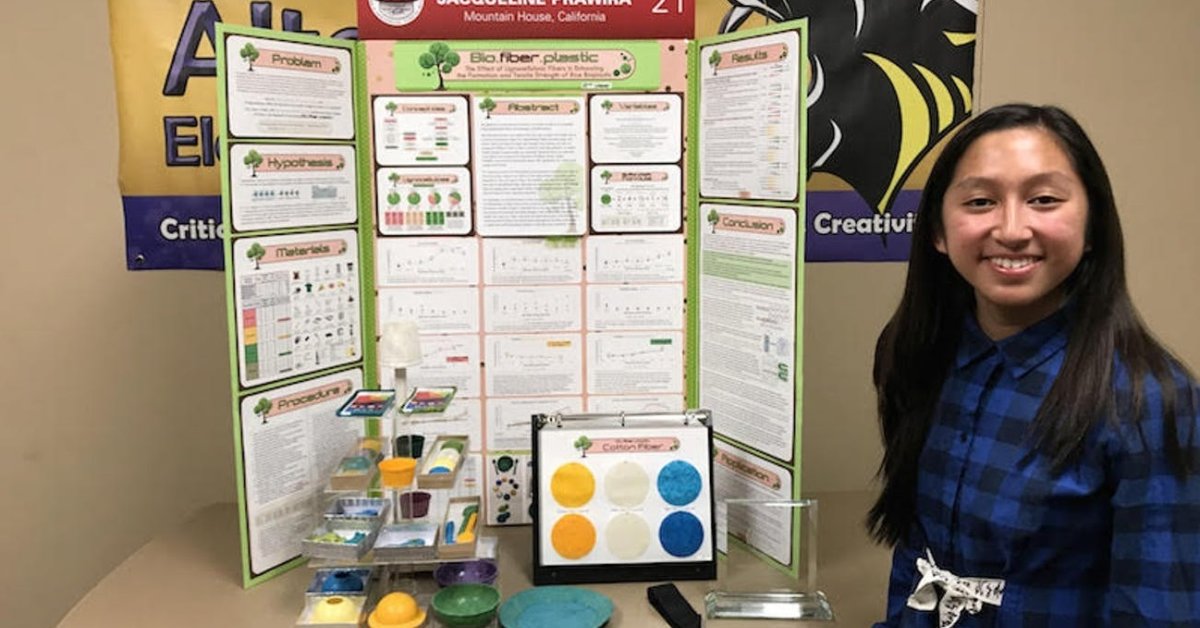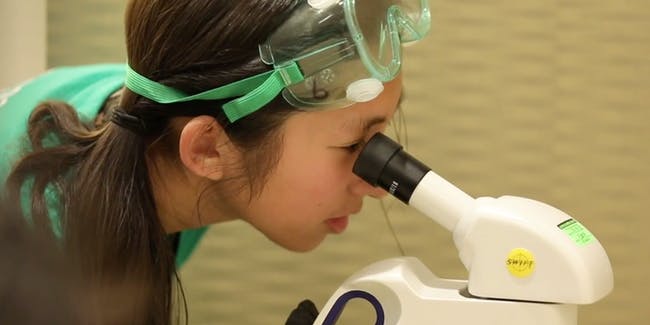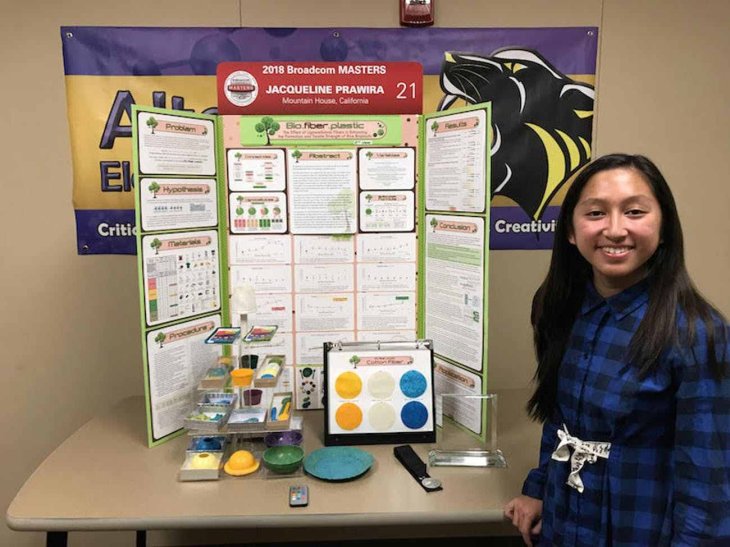This Teenage Scientist Developed A Bioplastic Using Paper, Cotton, And Corn Husks
Dhir Acharya - Dec 30, 2019

The new bioplastic is hoped to reduce the carbon footprint of industries that rely on traditional plastics for making everyday items.
- Indian Supermarket Should Use Banana Leaves To Package Products Instead Of Plastic Like This
- A Ban On Single-Use Plastics Was Just Approved By The EU
- A New Type Of Bioplastic Does Not Require Soil Or Freshwater To Make
As teenagers, most of what we did was going to school, hanging out with friends, and join some extra curriculum activities. However, Jacqueline Prawira has already become a scientist and has come up with her own invention. This 14-year-old girl has created a new bioplastic from cotton, paper, and corn husks.
In January, Prawira said that her experiments were focused on the three materials mentioned above as people often throw them into landfills, which eventually get carried in waterways. From thee materials, she managed to extract cellulose fibers to create a broken rice starch-based bioplastic that’s not only strong but also flexible.

The teenage scientists said that this way, her plastic can serve as a disposable material for making items used in our daily lives. This will help us upcycle the garbage rather than dumping it in landfills from which it will flow into the ocean.
Bioplastics are not made from traditional materials that pollute the environment. Recently, scientists discovered that they can break down plant-based sugar into molecules, which can link together and form plastics. They hope that bioplastics can help mankind decrease the carbon footprint left by myriad industries that use plastic.

In October, the girl won an award for her innovation, title Marconi/Samueli Award, at BROADCOM Masters science competition for youth. The next goal for her is to come up with a bioplastic that can degrade completely in the ocean and soil. She wants to tackle the plastics problem, which in her definition, is that we depend too much on single-use plastic.
Prawira is also aware that the issue with plastics will quickly catch up with mankind, and she needs to be proactive. She loves to look for and obtain new knowledge as well as explore questions that no one has asked yet, which are crucial skills for scientists if they want to make a difference.
Featured Stories

Features - Jan 29, 2026
Permanently Deleting Your Instagram Account: A Complete Step-by-Step Tutorial

Features - Jul 01, 2025
What Are The Fastest Passenger Vehicles Ever Created?

Features - Jun 25, 2025
Japan Hydrogen Breakthrough: Scientists Crack the Clean Energy Code with...

ICT News - Jun 25, 2025
AI Intimidation Tactics: CEOs Turn Flawed Technology Into Employee Fear Machine

Review - Jun 25, 2025
Windows 11 Problems: Is Microsoft's "Best" OS Actually Getting Worse?

Features - Jun 22, 2025
Telegram Founder Pavel Durov Plans to Split $14 Billion Fortune Among 106 Children

ICT News - Jun 22, 2025
Neuralink Telepathy Chip Enables Quadriplegic Rob Greiner to Control Games with...

Features - Jun 21, 2025
This Over $100 Bottle Has Nothing But Fresh Air Inside

Features - Jun 18, 2025
Best Mobile VPN Apps for Gaming 2025: Complete Guide

Features - Jun 18, 2025
A Math Formula Tells Us How Long Everything Will Live
Read more

ICT News- Feb 19, 2026
Escalating Costs for NVIDIA RTX 50 Series GPUs: RTX 5090 Tops $5,000, RTX 5060 Ti Closes in on RTX 5070 Pricing
As the RTX 50 series continues to push boundaries in gaming and AI, these price trends raise questions about accessibility for average gamers.

Mobile- Feb 17, 2026
Anticipating the Samsung Galaxy S26 and S26+: Key Rumors and Specs
The Samsung Galaxy S26 series is on the horizon, sparking excitement among tech enthusiasts.

ICT News- Feb 18, 2026
Google's Project Toscana: Elevating Pixel Face Unlock to Rival Apple's Face ID
As the smartphone landscape evolves, Google's push toward superior face unlock technology underscores its ambition to close the gap with Apple in user security and convenience.
Comments
Sort by Newest | Popular